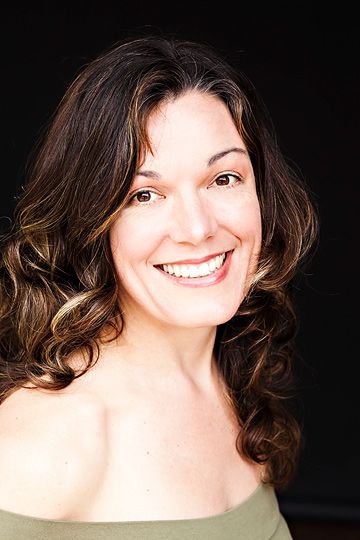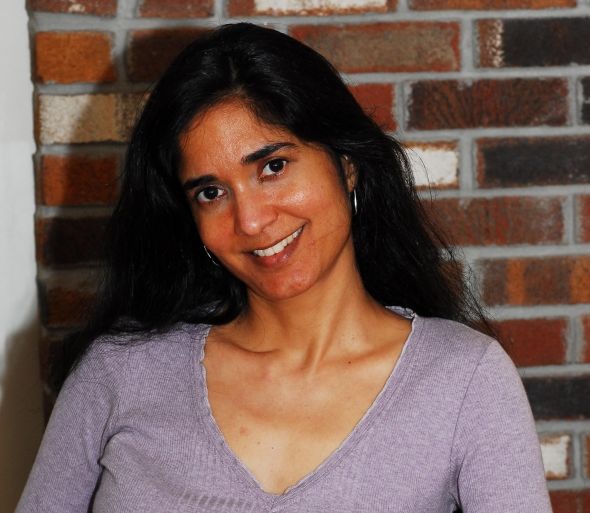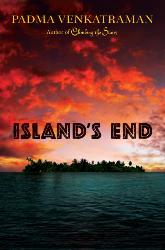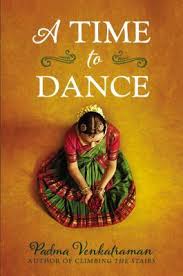While writing a post for Writer’s Digest on 12 Workplace Skills to Apply to Your Creative Writing Career, I thought about how we often dismiss our previous jobs as irrelevant to our current life as writers. Yet, many of our best assets are skills we learned in those “irrelevant” jobs.
- Serving as Executive Director of the wonderful nonprofit organization Hospitality Homes taught me most of what I know about Marketing and PR. I learned everything from how to write a press release to how to interview someone about their compelling life experience to how to be informative—and even entertaining, I hope—during a TV or radio interview. Are these skills the modern author needs? A resounding “yes.”
- A very brief stint in sales at AT&T taught me how to make a phone call or ask for an opportunity when feeling intimidated—something most authors have to do whether asking to interview a favorite author for a blog or writing a proposal for a coveted speaking gig.
- Teaching is a useful skill for any writer to reach her audience and help them get a deeper feel for her work. I learned to teach in an unlikely job—while writing computer code for internal departments at Pacific Gas and Electric Company (PG&E) in San Francisco. Creating and teaching classes was one of my favorite aspects of an otherwise techie job.
I began to wonder about my colleagues and writer friends. What were some of their unique job skills that informed their creative writing careers? I asked self-help authors Tama Kieves and Dr. Randy Kamen, memoirist Kimber Simpkins and YA author Padma Venkatraman about their quirky workplace skills… Click Here to Tweet this.
Tama Kieves, Best-selling Author of Inspired & Unstoppable: Wildly Succeeding in Your Life’s Work! was an attorney before she became an author and speaker. She relates her legal experiences directly to writing skills: “As a lawyer, I had to craft an argument, a clean line of reasoning. I took all the relevant case law and positioned it point by point, making it seem as though this was the only logical conclusion. In writing creative self-help books, I’ve used that same kind of structure. It allows me to romp all over the place in free writing. Then I use my “relevance meter,” slice and dice (oh so painful) and fashion a structure that makes it seem as the book just fell together in perfect order. I turn my creative chaos into joyous coherence. I guess the logic that helped me be a well-paid attorney also helps me be wildly creative as a writer, yet effective as a messenger and teacher.”
I asked Tama about a workplace skill she did not have that she had to learn once she became a writer. Tama says, “I had to ditch the ‘billable hour,’ the idea that I could produce something like clockwork. My muse took off her watch, kicked off her shoes, and wanted to walk barefoot in a park in the middle of the day. I had to unlearn my old idea of productivity, showing measurable results immediately. The more I set myself free and wandered off the clock, the more I nabbed spectacular outcomes, moments of genius, connecting dots I didn’t know needed to be connected. I came to understand that relaxing and not forcing myself to work helped me unlock a level of brilliance I could never have tapped in any other way.”
 Kimber Simpkins, recent winner of a 2014 Silver Nautilus Award for her memoir, Full: How one woman found yoga, eased her inner hunger, and started loving herself, is also a former attorney. “The longest paper I’d ever written before my book was a 110 page writing requirement in law school, filled with endless footnotes gathered from weeks in the library. I put that fact on replay whenever the thought, “I can’t possibly write a book” popped up.
Kimber Simpkins, recent winner of a 2014 Silver Nautilus Award for her memoir, Full: How one woman found yoga, eased her inner hunger, and started loving herself, is also a former attorney. “The longest paper I’d ever written before my book was a 110 page writing requirement in law school, filled with endless footnotes gathered from weeks in the library. I put that fact on replay whenever the thought, “I can’t possibly write a book” popped up.
“The biggest lesson from lawyering,” says Kimber, was the ability to pretend I knew what I was doing no matter how far out of my comfort zone I’d ventured—a useful skill in marshaling the arrogance to author a memoir, but one I had to later unlearn to write from authenticity instead of false authority.”
Dr. Randy Kamen, Huffington Post blogger and author of the bestselling self-help book Behind the Therapy Door, was most recently a full-time therapist. However, what she calls, “the best job of my entire life,” occurred two decades earlier as Assistant Professor in Behavioral Medicine at the Goldman School of Graduate Dentistry. “I worked with international students (post doctoral level) spanning the globe— from China, Bali, Africa, Central America, everywhere. I got to travel the world without moving. Working with international students required both empathy and compassion.
Dr. Kamen writes about those skills now and she also practices compassion with herself. By practicing self-compassion, Dr. Kamen says, ” I feel more confident; I can go deeper in examining issues I write about.
Dr. Kamen also credits the communication skills she learned while teaching at the school of Dentistry with supporting her writing career. “I know how to listen to the needs of an organization for a speaking or teaching gig. I’m able to tailor a program and rethink my ideas with theirs in mind. This helps me go deeper and be fresh, respond to the organization’s need in my blog posts, speaking and teaching.” Recently, Dr. Kamen received a request from Arianna Huffington to join her on a panel in NYC exploring gratitude. She read me the letter and pointed out that she had already begun to explore her current ideas about gratitude in light of the specific focus of the panel, rather than just stick to any past script or ideas about gratitude that she had taught before.
 Padma Ventatrama is the author of three multi-award winning novels, the most recent, A Time to Dance, receiving five starred reviews. I asked her how her workplace skills—in the lab, in the remote Andamans Islands, and onboard a research vessel—have contributed to her current work as a full time novelist. Our conversation was a bit longer than the others and I reproduce it here in its entirety:
Padma Ventatrama is the author of three multi-award winning novels, the most recent, A Time to Dance, receiving five starred reviews. I asked her how her workplace skills—in the lab, in the remote Andamans Islands, and onboard a research vessel—have contributed to her current work as a full time novelist. Our conversation was a bit longer than the others and I reproduce it here in its entirety:
Lisa: You were an oceanographer before you became a novelist. What’s one skill you learned in previous job—one you never would have thought in a million years would come in handy—that’s been very valuable to you as an author? Can you say why and how it’s been useful?
Padma: I loved mathematics – and that’s what led me to oceanography. People often think that mathematics and language are two opposite ends of a spectrum. But I think that much of mathematics is about pattern, which is why mathematics and music are intimately related. And language, at its best, is music. It sings. To me, an elegant equation is like a beautiful sentence. I think my years of doing mathematics, unexpectedly, helped hone my ears to the cadence of language, to patterns of sound.
Lisa: What other skills specific to being an oceanographer have come in handy and how?
Padma: Oceanographers often speak about their work to other scientists. I now speak to audiences about my books and I think the degree of comfort I have with public speaking was something I gained over the years during scientific presentations.

Lisa: How about when your workplace was in the remote islands of the Andamans? Anything transferable about skills used in that unusual workplace?
Padma: On the Andamans, I was quite isolated for long periods of time. I also didn’t have access to i-phones, my phones, your phones, or anybody phones; blackberries or any other kind of electronic fruit. I spent a lot of time thinking, meditating, enjoying solitude. As a writer, my days are filled with silence and solitude—and I was sure that I’d not only survive but thrive in this aspect of a writer’s life, given how I learned to love it while on the Andamans.
Lisa: What’s one skill you learned as an oceanographer you expect you will never need to use again?
Padma: I had to work in the laboratory and sometimes trouble shoot when scientific instruments didn’t work. I hope I’ll never need to do any of that again – and I doubt I’ll use those skills as a writer.
Lisa: What’s a workplace skill you did not have that you had to learn once you became a novelist?
Padma: Publicity and marketing are skills I am still learning as a novelist. Scientists do, to some degree, have to “sell” their work – when they’re interviewing or submitting a proposal to ask for funding, but it’s very different, in my opinion, from the sort of self-promotion that the world unfortunately expects authors to do today.
Lisa: What kinds of skills do you need to have when you are working on a research vessel and you are the only woman on board? Anything transferable to your current work?”

Padma: Being the only female, the only person of color, and a chief scientist aboard a research vessel taught me to rely on myself and find courage within. As a writer, I use that same strength and it helps me to be brave—in terms of constantly pushing myself to experiment with new forms, themes and genres. It helps me ignore trends and go with whatever inspires me. Don’t get me wrong. I deeply value every starred review, every award and honor I’ve received. It is immensely important and helps me continue to move forward. Then again, I don’t ever google myself, which is quite different from every other author I’ve met. Having learnt to rely on myself, I am not tempted to see how my book is doing in terms of sales. Instead, I work incredibly hard to achieve the best I can, without worrying how others might receive it or how they’re reacting. Although, ultimately, few things encourage me more than a sincere expression of admiration for my work, someone showing me my words have moved and touched their soul.”
Dear Reader: What quirky—or otherwise—workplace skills do you use in your creative writing career? What skills did you need to learn? Share your experiences as a comment on this post! Feel free to ask questions of our authors as well.



In case you are wondering where I get 5 authors (after all, there are photos of 4), I’m including myself!